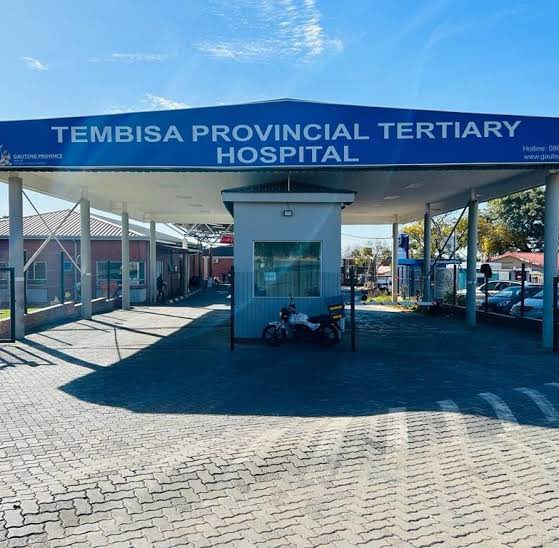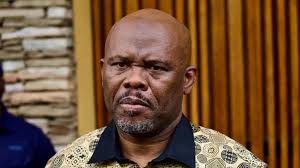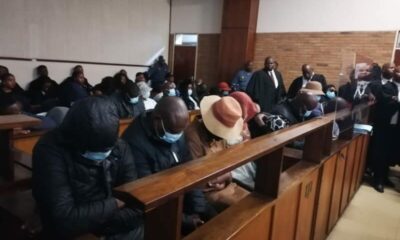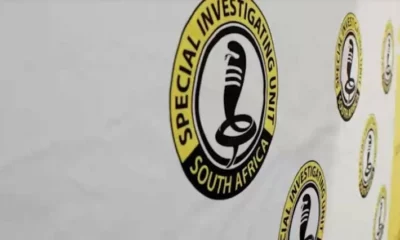News
Over R2 Billion Looted from Tembisa Hospital in Massive Corruption Scandal

R2 Billion Stolen from Tembisa Hospital: A Nation in Shock
Gauteng’s Tembisa Hospital has become the epicentre of a staggering corruption scandal, with the Special Investigating Unit (SIU) revealing that over R2 billion meant for public healthcare has been siphoned off through three coordinated syndicates. The interim report, released on Monday, paints a picture of a healthcare system hollowed out by greed, fraud, and maladministration, affecting the most vulnerable South Africans.
Advocate Andy Mothibi, head of the SIU, described the scale of the looting as “devastating,” noting that funds intended to provide critical medical services were instead diverted into private pockets through a sophisticated web of corruption.
Whistleblower’s Warning and Tragic Death
The investigation gained momentum following the assassination of whistleblower Babita Deokaran, the Gauteng Department of Health’s chief accountant. Deokaran, a single mother, had flagged R850 million in suspicious Tembisa Hospital payments just days before her brutal murder. Her death highlighted the lethal stakes faced by those exposing corruption in South Africa’s public institutions.
Social media has since erupted with outrage, with citizens expressing anger at how a hospital meant to save lives was exploited for personal gain. Many have called for swift prosecution of all implicated individuals and tighter oversight across the healthcare system.
The Syndicates Behind the Fraud
The SIU interim report identifies three main syndicates:
-
The Mazibuko Syndicate: Linked to Rudolph Mazibuko, this group handled 651 procurement bundles worth R283 million, with assets including properties in the Western Cape valued at R42 million.
-
The Maumela Syndicate: Connected to Hangwani Morgan Maumela, President Cyril Ramaphosa’s nephew, this syndicate manipulated 1,728 procurement bundles valued at R816 million. Luxury properties and vehicles worth over R520 million were identified, with some already frozen by the NPA Asset Forfeiture Unit.
-
Unnamed Third Syndicate: Responsible for 1,237 bundles valued at R596 million, investigators uncovered secondary accounts used to launder funds, along with assets estimated at R150 million.
In total, 207 service providers were implicated, linked to 4,501 purchase orders meant to follow a three-quote competitive procurement systema process that investigators say was routinely manipulated.
Officials and Oversight Failures
At least 15 current and former officials from the Gauteng Department of Health and Tembisa Hospital were found to be complicit, enabling fraud, collusion, and bid rigging. Corrupt payments tied to these individuals total R122 million, with 116 disciplinary referrals prepared and 108 already delivered to the GDOH.
Investigators identified repeated failures, including:
-
Appointing non-compliant service providers.
-
Approving fraudulent purchase orders.
-
Collusion among officials and suppliers to submit duplicate or coordinated invoices.
-
Ignoring oversight responsibilities, allowing syndicates to operate unchecked.
Medical supply spending surged dramatically, rising from R315 million in 2018/2019 to nearly R979 million in 2021/2023, despite patient numbers remaining stable, clear evidence of mismanagement and inflated spending.
The Human Cost of Corruption
Beyond numbers and assets, the scandal reveals a profound human cost. Public trust has been eroded, hospital resources remain strained, and patients continue to suffer. Minister of Health Dr Aaron Motsoaledi emphasised the gravity:
“When things like this happen, you start appreciating why extreme measures are taken elsewhere. This is about trust, public service, and the lives of the most vulnerable South Africans.”
Next Steps and Accountability
The SIU stressed that the interim report is only part of a continuing investigation. Further work will map the networks involved, recover misappropriated funds, and ensure accountability for all officials and service providers implicated. Investigations into similar corruption in Home Affairs are also underway.
Investigative journalist Jeff Wicks, reflecting on the wider implications in his book The Shadow State: Why Babita Deokaran Had to Die, warned that Tembisa Hospital is just one example of systemic corruption in South African public hospitals, describing the health sector as “a feeding trough for the corrupt.”
As the SIU continues its work, South Africans are watching closely, demanding that justice be served, stolen funds recovered, and public trust restored to one of the country’s most essential institutions.
{Source: Newsday}
Follow Joburg ETC on Facebook, Twitter , TikTok and Instagram
For more News in Johannesburg, visit joburgetc.com



























